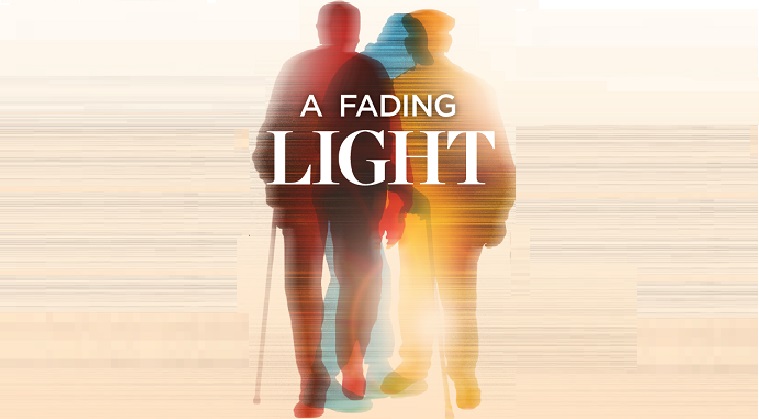The Fading Light: Chapter 1

How could I protect his dignity in the face of such a debilitating illness? How could I respect his independence and still keep him safe?

O
ne morning 18 years ago, my husband z"l and I walked through a door that took us into a parallel universe, as strange as Oz. The entry was quick, almost instantaneous, with no tornado carrying us there. It happened in a split second in a hotel room.
I woke up in the middle of the night and saw that my husband — a professor of psychology and a gifted artist — was fully dressed and standing by the door. Our children were scheduled to leave in the morning, and he said he wanted to help them with their luggage. When I asked if he thought they’d be checking out in the middle of the night, he answered in an odd way. I felt at that moment as if our life had imploded, that something was terribly wrong, and nothing would ever be the same again.
When I related the incident to our daughter, she was shocked by my response, insisting I’d read too much into it, and there was no way I could possibly infer such a disastrous diagnosis — dementia or some other equally devastating neurological disorder — from such a brief exchange.
I hoped and prayed she was right, but I knew this was not the case. I can’t explain how I knew, but I’d never been so sure of anything in my life. Many times over the course of my husband’s illness, I wished I’d been less perceptive. His illness progressed very slowly, and for a long time, the symptoms were subtle. There was no cure, no effective treatment — in short, there was nothing to be done.
Had I not known so early on, our familiar lives, ordinary and unremarkable, might have continued for a while. Because my husband denied that there was a problem and refused to see a doctor, we did not receive a formal diagnosis until several years later. But once the incident in that hotel room occurred, for me, there was no turning back. We had become denizens of this new country; a place where we didn’t speak the language, couldn’t read the street signs, and didn’t know the customs.
My own experience can best be conveyed by describing a dream I had around this time. I was driving through an intersection blindfolded. Despite my terror, I knew I had to drive on. In the dream, I — a grown woman and grandmother — called out, “Mommy, help me!” When I awoke, I was stunned to hear myself repeating those same words.
My husband suffered from a rare form of dementia, so our sojourn in the Realm of Illness was particular in some ways, but, on the whole, not so different from that of any person who is ill or is a caregiver. Familiar routines and friends fell away. Relationships shifted, and I found myself taking on challenging new tasks, like managing the family finances, for which I felt totally unprepared. I experienced utter panic at the prospect of preparing our taxes for the first time. I was required to find the right doctors, manage appointments and medication, deal with insurance and legal issues. All of these were responsibilities that felt unmanageable, jobs for which I’d had no training.
And my own job? I was a college professor. How, I wondered, could I manage my professional responsibilities while caregiving? There were other questions as well that I came to think of as The Big Questions. How could I get my husband to see a doctor without forcing him to confront a reality that he clearly did not wish to confront? How could I protect his dignity in the face of such a debilitating illness? How could I respect his independence and still keep him safe?
Although these questions changed with the progression of his illness, they were always there. So was worry, stress, and grief — yes, grief is a part of caregiving — emotions not unfamiliar to me but never before experienced as intensely. Shouldering these burdens, or similar ones, is what all caregivers do. We plod along, strangers in a new place, separated from all that’s comfortable and familiar. We work long and hard hours at jobs nobody would want, learn a new language, feel lost and confused, and never stop yearning for the land we left behind.
(Originally featured in Family First, Issue 639)
Oops! We could not locate your form.

